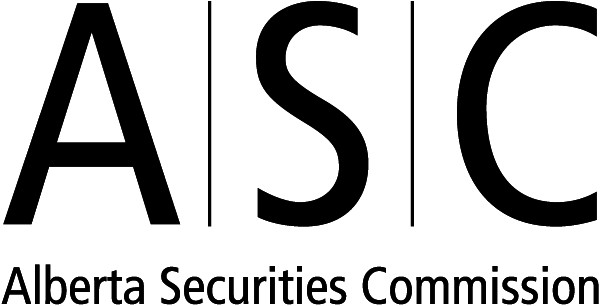Raising Money by Selling Securities
Disclaimer: The following information is intended only as general introductory information to address some common questions. It is not intended to be and must not be relied on as legal advice. Please refer to the specific provisions of Alberta securities laws. We encourage you to seek legal advice from legal counsel familiar with Alberta securities laws.
Your business can raise money by selling securities. It can sell securities:
- using a prospectus that is filed with and reviewed by securities regulators, or
- under one or more prospectus exemptions.
If your business files a prospectus and obtains a receipt for it, it will become a reporting issuer. The first time an issuer files a prospectus is called its initial public offering or IPO. That is one of the ways that a business can “go public”. For more details, see “Going Public”.
Prospectus exemptions can be used to sell securities to specific classes of investors such as, family and close personal friends, institutions or wealthy investors (e.g. angel investors, venture capitalists) or even to the general public provided in certain circumstances, which typically require that a specified offering document is used.
Relying on a prospectus exemption is sometimes called a “private placement” and parties involved in the sale of securities under prospectus exemptions are sometimes said to be part of the private or “exempt market”.
If you rely on a prospectus exemption you must strictly comply (see "Consequences of not complying with Alberta securities laws") with the terms of the exemption. Those conditions vary depending on the exemption and may include conditions such as:
- limits on the types of investors to whom they may sell securities
- a requirement to use a specific offering document
- a requirement to provide a specific risk warning
- limits on the amount an investor can invest
| Using a prospectus exemption to raise money – even one that requires the use of a specified offering document or that results in a large number of security holders – does not result in your business becoming a “reporting issuer” in Alberta. |
Using a prospectus exemption to raise money does not result in the issuer becoming a “reporting issuer” under Alberta securities law. This is true even if the prospectus exemption the issuer uses requires that investors be provided with a specified offering memorandum or offering document. Using the offering memorandum exemption triggers some limited ongoing filings but does not make the issuer a “reporting issuer”. Although in some foreign jurisdictions the number of security holders an issuer has may result in a company becoming subject to public company obligations, that is not the case under Alberta securities law.
There are various provisions of securities law that may be applicable depending on your circumstances. However there are a few key principles of securities law that are particularly relevant when selling securities to raise money.
1) Prospectus requirement – As discussed above, the distribution of securities requires a prospectus or a prospectus exemption. One of the main purposes of a prospectus is to ensure that investors have sufficient information to make an informed investment decision.
If you are the seller of securities, selling securities under a prospectus exemption, it is your obligation (not the purchaser’s) to comply with the terms of any prospectus exemption intended to be relied on and to confirm that the investor meets any required conditions of that exemption. It is important to take reasonable steps to confirm this. It is not sufficient to rely only on a representation by a purchaser. Refer to the Companion Policy to National Instrument 45-106 Prospectus Exemptions for further guidance on the applicable prospectus exemptions and the reasonable steps that should be taken to confirm an investor’s status.
| A prospectus exemption is only an exemption from the prospectus requirement – not the other aspects of securities law. |
2) Dealer registration requirement – A person or company “in the business” of trading securities is required to be registered (a form of licensing) as a dealer. (See section 75 of the Securities Act (Alberta) (the Act)). We call this the “business trigger”.
You are not required to hire a dealer to sell your securities. However, it may be challenging to find investors without one.
If your business hires a third party to find investors for it and help trade its securities, the person or company hired will often be considered to be in the business of trading securities, i.e., a dealer, and, unless there is an exemption available to them, required to be registered as a dealer in each jurisdiction in which they will be trading securities. You can use the CSA’s Check Registration page to see whether they are registered.
Many businesses raise money by issuing their own securities without themselves being considered to be “in the business” of trading securities and triggering the requirement to be registered as a dealer. However, there are some circumstances where the issuer of securities might itself be subject to the dealer registration requirement as a result of, among other things, the following:
- the issuer offers its securities for sale on an ongoing or continuous basis
- the issuer employs or contracts individuals to perform activities similar to those performed by a registrant
- the issuer’s business is the sale of securities, e.g., it raises money to invest in a portfolio of assets or securities
For further guidance on what it means to be “in the business” see the Companion Policy to National Instrument 31-103.
3) Fraud and misleading statements – Alberta securities law prohibits fraud. It also prohibits any statement that a person or company knows or reasonably ought to know:
- in a material respect and at the time and in light of the circumstances in which it is made,
- is false or misleading, or
- does not state a fact that is:
- required to be stated, or
- that is necessary to make the statement not misleading and
- that would reasonably be expected to have a significant effect on the market price or value of a security. (See sections 92(4.1) and 93 of the Act.)
Some key take-aways:
- Note that the prohibition on misleading statements is not limited to written statements. It also applies to oral statements.
- The prohibitions are not limited to offering documents required to be delivered to investors but can apply to other materials e.g., slide decks, videos and brochures, that are provided voluntarily.
- It is important to make sure information provided is fair and balanced. It can be misleading to omit to state something e.g., emphasizing potential upside and downplaying or burying risks. Disclosure of promising proposed transactions that are subject to significant conditions or contingencies, without proximate disclosure of those conditions or conditions, could be misleading.
- These prohibitions apply in all cases when securities are being traded – including by prospectus, under a prospectus exemption or secondary trading.
- Strive for clear and plain language. Technical terms that aren’t explained or that are used inconsistently or used differently from what might reasonably be understood, in addition to vague or confusing language can be misleading.
- Disclosure of financial projections and other forward-looking information runs the risk of being misleading if it is not reasonable or it is not accompanied by disclosure of the major underlying assumptions and the major related risks to meeting those projections or other forward-looking information.
4) Unfair sales practices – Alberta securities laws prohibit persons or companies from engaging in an “unfair practice” when trading securities. The term “unfair practice” is defined in section 92(5) of the Act.
Some examples of unfair practices include:
- putting unreasonable pressure on a person to buy, sell or hold a security
- imposing harsh, oppressive or excessively one-sided terms
- taking advantage of a person’s inability to understand the matter
5) Additional prohibitions - The prohibitions on fraud, misleading statements and unfair sales practices are probably things most people would assume are prohibited. However, there are also a few additional prohibitions that deal with particular statements, for example:
- representing that you will resell or repurchase a security or refund the purchase price unless that is actually part of the rights or obligations attaching to the security
- giving any undertaking about the future value or price of a security
- representing that a security will be listed on a stock exchange, except where certain specific conditions exist
- representing to offer to trade at the market price or a price related to the market price where there isn’t an independent market
- creating an artificial appearance of trading or an artificial price
These types of statements and actions can be deceptive to investors and provide false comfort.






